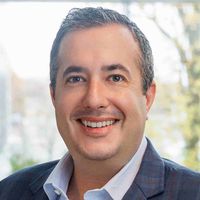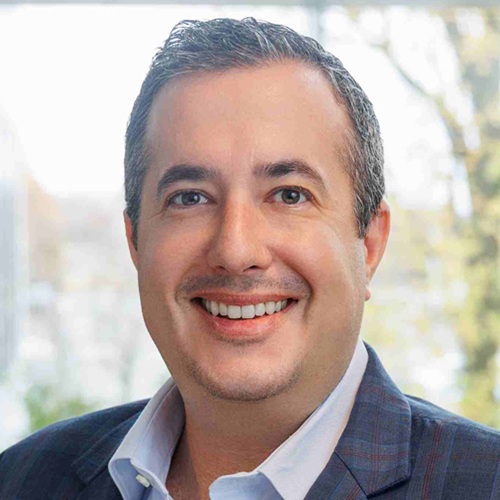I'm a Wealth Adviser: This Is How to Prevent Your Heirs From Frittering Away the Family Fortune
To prevent family wealth from being eroded down the line, younger generations must be treated as active stewards of a legacy rather than passive heirs.


Profit and prosper with the best of Kiplinger's advice on investing, taxes, retirement, personal finance and much more. Delivered daily. Enter your email in the box and click Sign Me Up.
You are now subscribed
Your newsletter sign-up was successful
Want to add more newsletters?
It's a sobering statistic: Roughly 90% of family wealth disappears by the third generation. For many families, that means the grandchildren of today's wealth builders may inherit only stories, not financial security.
The problem usually isn't poor investment returns or bad estate planning. More often, wealth erodes because of human nature: lack of communication, lack of purpose and lack of preparation.
The first generation works hard to create wealth. The second generation often helps manage it. By the third generation, children who never saw the sacrifices made to build that wealth may begin to see it as a right instead of a responsibility.
From just $107.88 $24.99 for Kiplinger Personal Finance
Become a smarter, better informed investor. Subscribe from just $107.88 $24.99, plus get up to 4 Special Issues

Sign up for Kiplinger’s Free Newsletters
Profit and prosper with the best of expert advice on investing, taxes, retirement, personal finance and more - straight to your e-mail.
Profit and prosper with the best of expert advice - straight to your e-mail.
Kiplinger's Adviser Intel, formerly known as Building Wealth, is a curated network of trusted financial professionals who share expert insights on wealth building and preservation. Contributors, including fiduciary financial planners, wealth managers, CEOs and attorneys, provide actionable advice about retirement planning, estate planning, tax strategies and more. Experts are invited to contribute and do not pay to be included, so you can trust their advice is honest and valuable.
To prevent that outcome, families must think beyond spreadsheets and estate documents.
The most successful families invest in three kinds of capital: financial, human and social. Together, these provide a framework for protecting both the money and the meaning behind it.
1. Financial capital: Building a durable structure
Financial capital is the foundation of family wealth: investment portfolios, real estate, business interests and other assets.
But growth alone isn't enough to preserve wealth across generations. Structure matters even more.
As assets are divided among more family members, differing personalities, needs and priorities can create conflict and poor decisions that slowly deplete the financial base.
Practical steps to strengthen financial capital:
Create a long-term financial strategy. A written plan that aligns assets to goals, such as retirement, education and philanthropy, provides direction and prevents money from being spent haphazardly.
Use trusts and other estate planning tools. These structures create guardrails, clarifying how and when wealth will be transferred to future generations. They also reduce uncertainty and conflict.
Communicate the "why." Numbers alone don't motivate. Share with your family how the wealth was built, what you hope it will provide and the values you want carried forward.
One family I worked with used a letter from their grandfather that described the origins of the family business and the hardships of that time. That personal context can help keep the next generation grounded.
Keep the plan alive. Review strategies together periodically. As families expand and circumstances change, the plan should evolve as well.
A strong financial structure is the starting point. Without it, even the best intentions can't prevent wealth from unraveling.
2. Human capital: Preparing the next generation
Money alone does not preserve wealth; people do. Human capital refers to the knowledge, skills and judgment that family members bring to managing both the assets and the responsibilities that come with them. Education and preparation turn passive heirs into active stewards.
Practical steps to build human capital:
Invest in education. Support younger family members in gaining not only classroom knowledge but also leadership, communication and problem-solving skills. A well-rounded education equips them to make sound decisions.
Provide real-world exposure. To give younger generations practical insight into how wealth is managed, offer internships in the family business or opportunities to shadow advisers and participate in investment reviews.
Offer mentorship and guidance. Encourage relationships across generations, pairing younger members with older relatives or trusted advisers who can provide perspective and advice.
Promote cooperation. Not every family member needs to be an expert in every area. Some will gravitate toward business or investing, while others may align more with philanthropy or family governance.
Encourage each person to lean into their strengths and contribute where they add the most value.
When families nurture human capital, they create confident, capable heirs who see themselves as part of a larger legacy rather than passive recipients.
3. Social capital: Strengthening the family fabric
Even with strong finances and capable heirs, wealth can still erode if the family fabric weakens. Social capital is the trust, shared values and sense of connection that binds families together.
When disagreements or rivalries take center stage, the numbers on the balance sheet matter less than the fractures in the relationships.
Practical steps to reinforce social capital:
Lead with purpose. Make it clear that wealth exists to support the family, not divide it. Celebrate achievements together and be intentional about showing support during difficult times.
Stay engaged as a group. Hold regular family meetings that cover not only money but also shared goals, charitable initiatives and values. Invite input from multiple generations so everyone feels included and accountable.
Document the family story. Preserve history through written accounts, letters or recordings. Personal stories about how wealth was built often carry more weight than numbers. They remind younger generations that financial success is tied to resilience and sacrifice.
Encourage shared experiences. Activities like volunteering together, funding a joint philanthropic project or even gathering for annual retreats help strengthen bonds beyond money.
Looking for expert tips to grow and preserve your wealth? Sign up for Adviser Intel (formerly known as Building Wealth), our free, twice-weekly newsletter.
Social capital is often overlooked, but it is what allows financial and human capital to function. Without a sense of connection and trust, even the best-prepared family can drift apart.
Putting it all together
Families that succeed across generations treat wealth as more than numbers on a balance sheet.
They see it as a living legacy that requires constant investment in people, purpose and planning. A few small but consistent practices make the difference:
Start early. Bring younger generations into the conversation as soon as possible. The earlier they learn, the stronger the foundation.
Be intentional. Connect every financial decision to broader family values so money is always serving a purpose.
Measure progress. Track more than investment performance. Measure engagement, education and impact to hold everyone accountable.
Whether it is hosting an annual family meeting, letting children help direct charitable giving, or inviting a finance-majoring grandchild to sit in on an investment review, every step builds connection.
In the end, preserving wealth beyond the third generation is not about money alone. It is about preparing people to carry forward both the financial and personal legacy of the family.
Related Content
- Do You Need a Family Office? Four Signs for the Very Wealthy
- Nine Types of Trusts for High-Net-Worth Estates
- Create a Family Dynasty for Lasting Security
- I'm a Financial Adviser: You've Built Your Wealth, Now Make Sure Your Family Keeps It
- Generational Wealth Plans Aren't Just for Rich People
Profit and prosper with the best of Kiplinger's advice on investing, taxes, retirement, personal finance and much more. Delivered daily. Enter your email in the box and click Sign Me Up.

Michael Schneider is a Managing Director, Partner and Wealth Adviser with The Lerner Group, where he has been helping families navigate complex financial decisions since 2012. With a focus on holistic wealth management, Michael works closely with clients to align financial planning, estate strategies and investment decisions with their long-term goals and values.
-
 4 High-End Experiences Worth the Splurge After 50
4 High-End Experiences Worth the Splurge After 50These curated date ideas provide the perfect backdrop for couples ready to enjoy the very best that the world has to offer.
-
 Health Care Stocks Have Sagged. Can You Bet on a Recovery?
Health Care Stocks Have Sagged. Can You Bet on a Recovery?The flagging health care sector has perked up a bit lately. Is it time to invest?
-
 Costco's Auto Program: Can Membership Pricing Really Save You Money on a Car?
Costco's Auto Program: Can Membership Pricing Really Save You Money on a Car?Costco's Auto Program can simplify the car-buying process with prearranged pricing and member perks. Here's what to know before you use it.
-
 4 High-End Experiences Worth the Splurge After 50
4 High-End Experiences Worth the Splurge After 50These curated date ideas provide the perfect backdrop for couples ready to enjoy the very best that the world has to offer.
-
 Health Care Stocks Have Sagged. Can You Bet on a Recovery?
Health Care Stocks Have Sagged. Can You Bet on a Recovery?The flagging health care sector has perked up a bit lately. Is it time to invest?
-
 My Grandkids Want Me to Donate to Their Teams and School Fundraisers. I Adore Them, but I'm on a Budget.
My Grandkids Want Me to Donate to Their Teams and School Fundraisers. I Adore Them, but I'm on a Budget.When your heart says "yes" but your wallet says "no," there is still a way forward. Here's what financial pros say.
-
 Your Retirement Age Is Just a Number: Today's Retirement Goal Is 'Work Optional'
Your Retirement Age Is Just a Number: Today's Retirement Goal Is 'Work Optional'Becoming "work optional" is about control — of your time, your choices and your future. This seven-step guide from a financial planner can help you get there.
-
 Have You Fallen Into the High-Earning Trap? This Is How to Escape
Have You Fallen Into the High-Earning Trap? This Is How to EscapeHigh income is a gift, but it can pull you into higher spending, undisciplined investing and overreliance on future earnings. These actionable steps will help you escape the trap.
-
 I'm a Financial Adviser: These 3 Questions Can Help You Navigate a Noisy Year With Financial Clarity
I'm a Financial Adviser: These 3 Questions Can Help You Navigate a Noisy Year With Financial ClarityThe key is to resist focusing only on the markets. Instead, when making financial decisions, think about your values and what matters the most to you.
-
 Dow Absorbs Disruptions, Adds 370 Points: Stock Market Today
Dow Absorbs Disruptions, Adds 370 Points: Stock Market TodayInvestors, traders and speculators will hear from President Donald Trump tonight, and then they'll listen to Nvidia CEO Jensen Huang tomorrow.
-
 It's Time to Bust These 3 Long-Term Care Myths (and Face Some Uncomfortable Truths)
It's Time to Bust These 3 Long-Term Care Myths (and Face Some Uncomfortable Truths)None of us wants to think we'll need long-term care when we get older, but the odds are roughly even that we will. Which is all the more reason to understand the realities of LTC and how to pay for it.